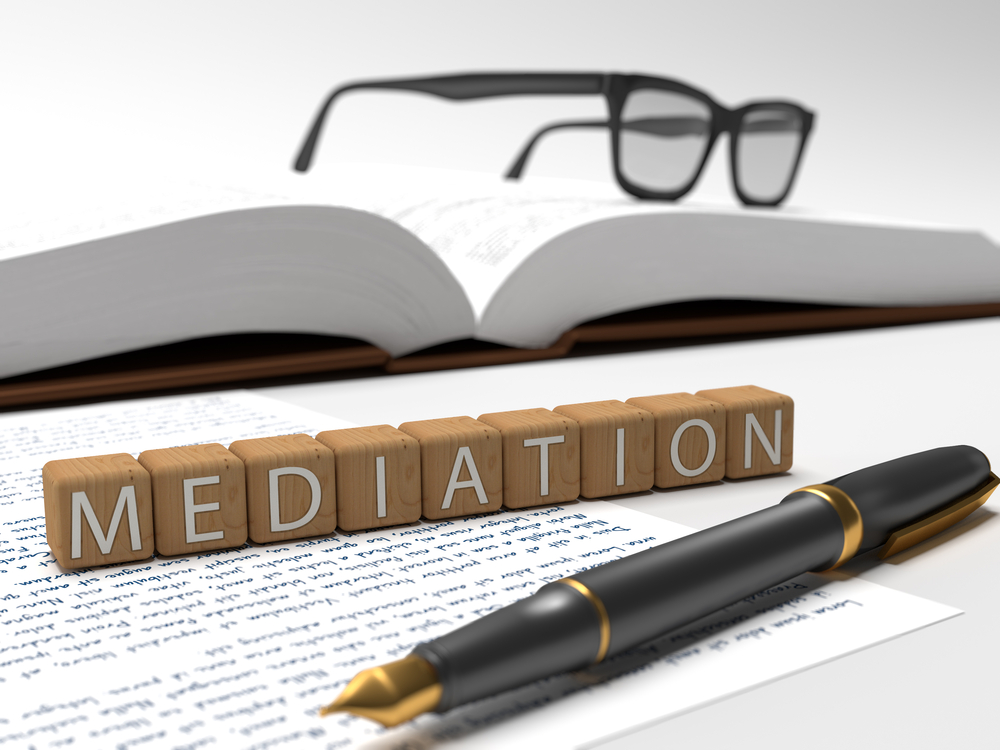 In a divorce, it can often be helpful to involve a neutral third party to assist with divorce negotiations. This means involving a person outside of you, your spouse, and your respective attorneys (because your attorney’s job is to support your own best interests, they’re not considered a neutral party). Typically, there are two methods for involving a third party in your divorce process: arbitration and mediation. What are the differences between these two options and what do they entail? Keep reading to find out.
In a divorce, it can often be helpful to involve a neutral third party to assist with divorce negotiations. This means involving a person outside of you, your spouse, and your respective attorneys (because your attorney’s job is to support your own best interests, they’re not considered a neutral party). Typically, there are two methods for involving a third party in your divorce process: arbitration and mediation. What are the differences between these two options and what do they entail? Keep reading to find out.
What They Have in Common
Both mediation and arbitration have similar benefits. As they are both alternative forms of dispute resolution, they can help you avoid the time-consuming and expensive process of litigation, or at least help to reduce the amount of time you have in court. They also give both you and your ex more privacy and control over the divorce process. Because of their similar benefits, both can be excellent options for your divorce. However, it’s important to understand more about how these two processes differ in order to determine the best option for your individual situation.
What Is Mediation?
Mediation is a term that most people are familiar with, even in the context of a divorce. Mediation involves working with a third-party mediator who helps to guide conversations and negotiations between you and your ex. You and your ex meet with a mediator together, along with your divorce attorneys, to work through potential roadblocks in your negotiations.
The mediator’s job is to attempt to understand each party’s individual perspectives, and help deescalate conflicts in the divorce negotiations. They will help guide you through any major issues on which you disagree to help you reach a resolution together. If you can reach an agreement, both parties and their attorneys can sign the divorce documents and file it with the courts without proceeding to litigation. If it becomes clear that you and your ex still cannot reach an agreement, your mediator will step aside and allow the case to move on to a courtroom.
What Is Arbitration?
In its structure and process, arbitration is actually much more similar to litigation than it is to mediation. In arbitration, an arbitrator or a team of arbitrators will investigate the facts of your case, analyze the conflicts you’re facing, and provide their own decisions based on their findings. In essence, arbitrators act as a sort of jury, examining your case in detail and issuing a “verdict” regarding the issues on which you and your spouse cannot agree.
Typically, when you enter into arbitration, you and your spouse will decide whether it will be binding or nonbinding arbitration. Under binding arbitration, both parties agree that the arbitrator’s decision is final, and it cannot be overturned by a court. If the arbitration is nonbinding, either party can reject the arbitrator’s decision and decide to pursue litigation instead.
Arbitration is essentially a sort of middle ground between mediation and litigation. While less formal (and less expensive) than litigation, the process is still much more structured than mediation and, as mentioned above, can result in a “ruling” much like you’d receive in a divorce court.
Which Option Should You Pursue?
Both mediation and arbitration can allow you to settle your divorce outside of court, saving both parties a great deal of time and money. Unfortunately, we can’t tell you here which of these options is right for you—or if either of them would be beneficial to you at all. That will depend on the individual circumstances of your case, and the nature of your relationship with your ex.
Pursuing These Options with an Attorney
It’s important to note that neither mediation nor arbitration should be viewed as a substitute for working with a skilled divorce attorney. While both of these methods can help you reach a settlement with your ex, neither a mediator nor an arbitrator is acting in your best interests; the nature of their position is to remain impartial and try to achieve a mutually beneficial agreement. It is still important that you have a divorce lawyer working with you to support you in pursuing your best interests.
At The Harr Law Firm, we have ample experience not only in the courtroom, but also in working with mediators and arbitrators to aid in divorce proceedings. Whether you choose mediation, arbitration, or litigation, the attorneys at The Harr Law Firm can help to ensure your rights are protected, and that you’re being treated fairly in the divorce proceedings. Contact us today to schedule a consultation.